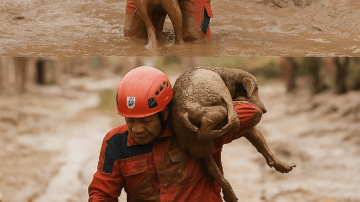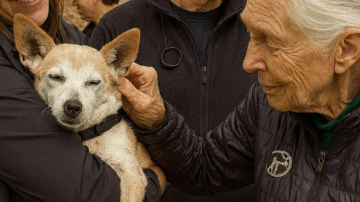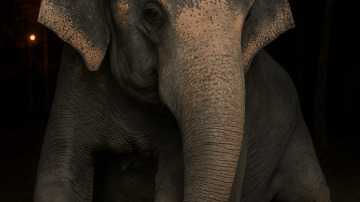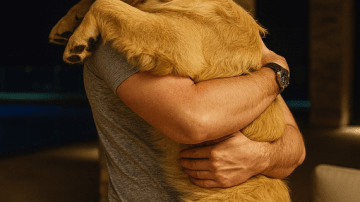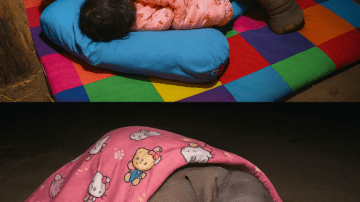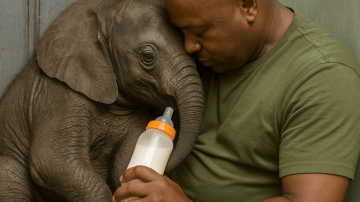For millions around the world, Viggo Mortensen will forever be remembered as Aragorn — the ranger who became a king, the hero who walked through fire and shadow to save Middle-earth. But behind the sword, the crown, and the sweeping battles lies another kind of heroism, one that never made the headlines. It is a story not about conquering darkness, but about quiet compassion. About the bond between a man and the animals who shared his journey.

On the set of The Lord of the Rings, Viggo rode a horse named Uraeus. Strong, intelligent, and steady, the stallion became his partner through months of grueling filming. Together they crossed rivers, galloped across misty plains, and braved long hours under rain-soaked skies. Something unspoken grew between them — a language beyond words. Each trusted the other completely.
When the final scene was filmed and the world of Middle-earth was ready to fade into memory, most actors packed up their costumes and moved on. But Viggo couldn’t. He couldn’t walk away from the horse that had carried him — not just through a movie, but through something far deeper.
Uraeus had been more than a co-star. He had been a friend.

So Viggo did something rare in the movie industry. He purchased the horse from its owners. Not for show. Not for publicity. Simply because he wanted to make sure Uraeus would never spend a day in discomfort or neglect. He wanted to give him the peace he had earned.
That decision alone spoke volumes about who Viggo is. Yet his compassion didn’t end there.
During the filming of The Fellowship of the Ring, Arwen’s stunt double — a dedicated horsewoman — formed her own deep bond with a horse she rode for months. The animal had carried her through dangerous stunts, trusting her completely. But when filming ended, the horse was set to be sold, and she couldn’t afford to buy him.
Viggo heard about it quietly, without any grand announcement or formal plea. He didn’t hesitate. He bought the horse himself and gifted it to her. There were no press releases, no photographers, no stories planted in newspapers. Just one man doing what his heart told him was right.

When she learned what he had done, the stunt double cried. She called it the kindest act anyone had ever done for her. Viggo only smiled. “He belongs with you,” he told her. “You two understand each other.”
In a world where so much kindness goes unseen, this story might have stayed hidden too. But word spread, not through gossip or headlines, but through whispers from those who had been there. They spoke of Viggo’s gentleness, his respect for animals, his quiet refusal to see them as props or tools.
To him, every creature had a soul.
On the set of The Two Towers, crew members often noticed how he would arrive early just to check on the horses. He would brush their coats, talk to them softly, and make sure they were calm before the day’s work began. He learned their personalities — which ones were nervous, which ones loved attention, which ones needed a little extra patience.
He treated them like family.
In interviews, Viggo rarely mentioned any of this. He spoke instead about teamwork, about humility, about listening — to people and to animals alike. He often said that filming The Lord of the Rings wasn’t just about acting; it was about learning how to exist in a world bigger than himself.
That mindset shaped every quiet act of kindness he performed.
When production ended, Viggo didn’t just buy Uraeus. He bought two other horses from the trilogy as well, including one used in battle scenes. He wanted them to live out their lives in comfort, away from film sets and the stress of constant travel.
Years later, he would visit them often, their relationship unchanged. The horses remembered him. They always did.
Animals never forget those who treat them with love.
There’s something deeply moving about that — the image of a man once known as a king in fantasy choosing to spend his real-life royalties not on luxury, but on life itself. In his choices, there is no arrogance, no pretense. Only gratitude.
Viggo Mortensen’s story reminds us that heroism doesn’t always wear armor or wield a sword. Sometimes it lives in the simple act of seeing — truly seeing — another being’s worth. It’s in the compassion that doesn’t ask for attention, in the generosity that expects nothing in return.
In that sense, he remains every bit the king he once portrayed.
The bond between humans and animals is one of the oldest stories on earth. It’s written in the eyes of a horse that trusts its rider, in the gentle hand that offers care without demand. And though movies can capture grand battles and noble sacrifices, it is these quiet connections that linger longest in the heart.
What makes Viggo’s actions so unforgettable is their simplicity. He didn’t talk about kindness — he practiced it. He didn’t just act as a protector on screen — he became one in real life.
He understood what many forget: that animals give everything they have to us — loyalty, strength, companionship — and they ask only for gentleness in return.
Years have passed since the cameras stopped rolling in New Zealand, but this story continues to echo. Fans still share it because it feels like a rare glimpse of true humanity. In an age of self-promotion, Viggo’s quiet gesture stands out like a steady flame.
He showed that kindness can be heroic too.
Those who worked with him often say that Viggo treated everyone — from the stuntmen to the catering staff — with the same respect he gave his horses. He listened. He learned their names. He thanked them. He saw the value in everyone’s role, no matter how small.
And maybe that’s the secret to his magic.
He doesn’t separate the extraordinary from the ordinary. To him, they are the same — connected by empathy, by attention, by heart.
It’s easy to be impressed by epic stories of courage. But the truest heroes are the ones who act with compassion when no one is watching. The ones who make choices rooted not in fame, but in love.
Viggo Mortensen may have worn a crown in The Lord of the Rings, but it is his unseen kindness that makes him truly noble. His bond with those horses, his gift to a fellow rider, his respect for every living being — these are the quiet moments that define real greatness.
And perhaps that’s the lesson we should all carry. That kindness, even the smallest act of it, leaves an echo that outlasts fame. That love, when freely given, becomes a story worth remembering.
Because sometimes the greatest heroes aren’t the ones who save worlds.
They’re the ones who save a life — gently, humbly, and without ever asking for applause.

